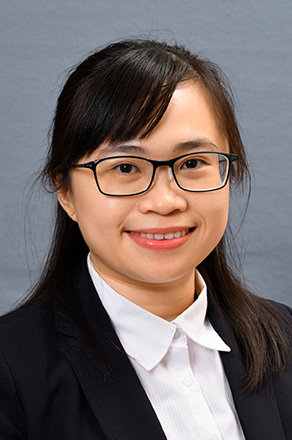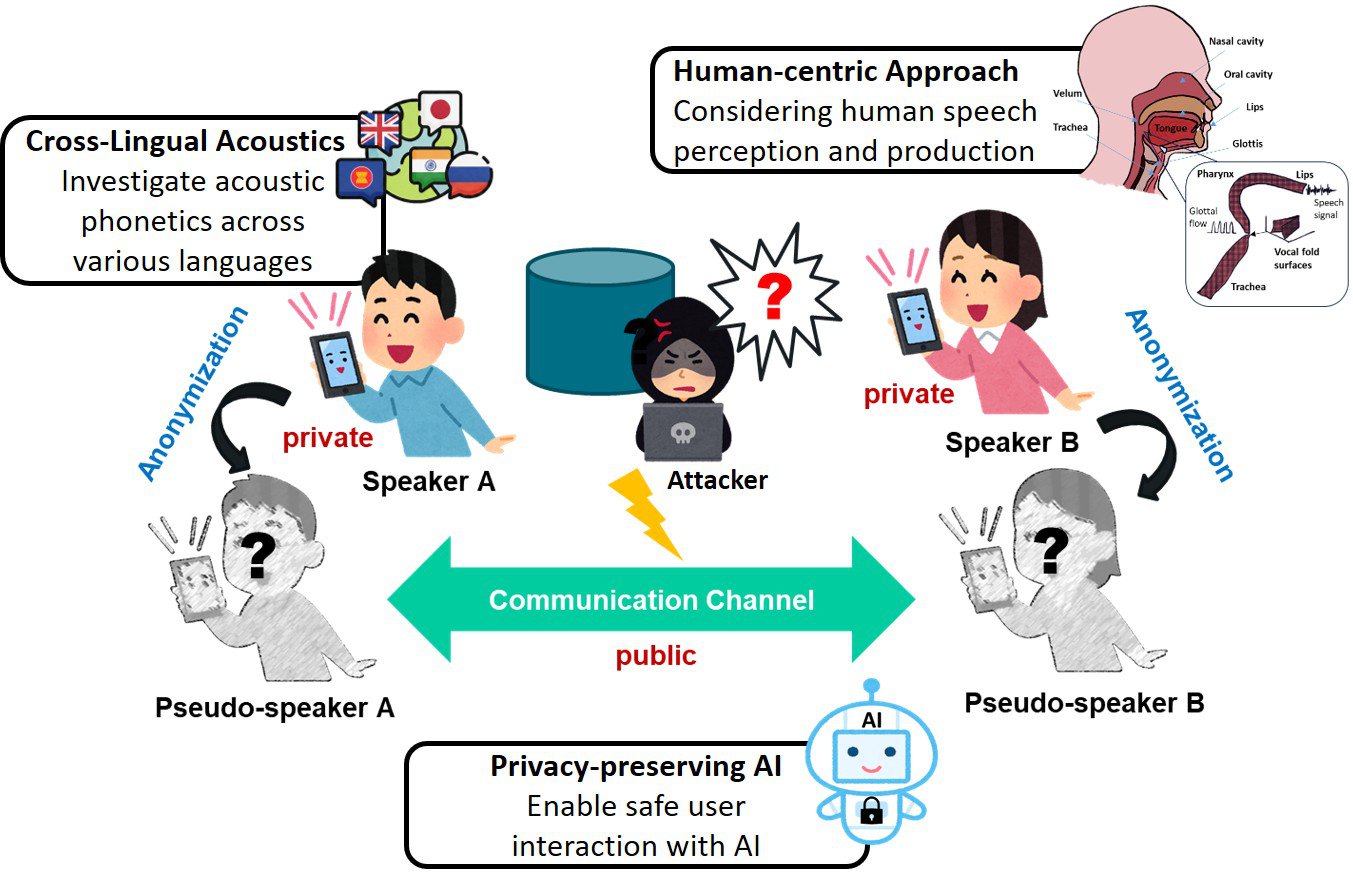
Towards a cyber space where you can speak with peace of mind
Laboratory on Speech, Hearing, and Interaction
Senior lecturer:MAWALIM, Candy Olivia
E-mail:
[Research areas]
Voice Privacy, Spoken Language Processing, Acoustic Phonetics, Machine Learning
[Keywords]
Voice conversion, Speaker anonymization, Cognitive hearing, Hearing Aid Technology, Low-resource language processing, Human-computer interaction
Skills and background we are looking for in prospective students
Our laboratory welcomes students who are passionate about improving communication through speech and hearing technology, who can utilize the fundamentals of machine learning and signal processing, who have technical English skills, and who are motivated to engage in research with an international perspective.
What you can expect to learn in this laboratory
Through activities in this laboratory, students will acquire two core competencies: advanced data-scientific thinking and human-centered application skills. Specifically, students will acquire practical AI development skills, designing and implementing voice and acoustic signal processing technologies. In addition, through research on voice privacy, students will develop deep knowledge of data security measures necessary for protecting personal information and the ability to assess technical risks. Ultimately, students will refine their engineering design skills, applying cognitive science and HCI methods to solve abstract challenges like creating natural dialogue and improving speech intelligibility. This provides a robust foundation for developing socially impactful applications.
【Job category of graduates】 Information and communication technology, systems development, research positions
Research outline
Our laboratory focuses on the fundamental human communication skills of listening and speaking, aiming to achieve better interaction between humans and digital technology. Specifically, we integrate three fields: speech science, cognitive science, which elucidates human hearing and cognitive functions; and human-computer interaction, to address the following research themes.
1. Research on Human Speech and Hearing
Going beyond basic speech recognition and synthesis, we research how people convey emotions and intentions in their voices and how those are perceived. We develop speech technologies that consider human listening and speaking with the goal of solving issues in diverse communication settings. We also investigate acoustic phonetics across various languages, including those with low resources, and focuses on distinguishing between human-produced and machine-generated speech.
2. Privacy-Preserving Speech Technology
Our laboratory's primary focus is building speech technology that users can trust. Because voice data contains a significant amount of personal information, its handling requires consideration in ethics and technology. We are developing voice anonymization technology to prevent identification of individuals from privacy-preserving AI that learns while protecting confidential information. This allows users to safely interact with AI systems.
3. Application to Solving Social Issues
The technology developed in our research has practical applications in enhancing speech-related technologies, such as hearing aids and systems that assist people with communication disabilities. Our privacy-preserving technology will also enable the use of AI in highly confidential fields like healthcare, leading to practical applications that benefit society.

Figure 1. A privacy-preserving and multilingual speech AI system
Key publications
- C. O. Mawalim, K. Galajit, J. Karnjana, S. Kidani, M. Unoki, “Speaker Anonymization by Modifying Fundamental Frequency and X-Vectors Singular Value”, Computer Speech and Language, Elsevier, vol. 73, 101326, 2022.
- C. O. Mawalim, B. A. Titalim, S. Okada, and M. Unoki, “Non-Intrusive Speech Intelligibility Prediction Using an Auditory Periphery Model with Hearing Loss”, Applied Acoustics, vol. 214, 2023.
- C. O. Mawalim, C. W. Leong, G. Sivan, H-H. Huang, and S. Okada, “Beyond accuracy: Multimodal modeling of structured speaking skill indices in young adolescents,” Computers and Education: Artificial Intelligence, Vol. 8, June 2025.
Equipment
Studio condenser microphones, advanced digital MEMS arrays, video cameras, podcast studio microphones, and Arduino prototyping kits
Teaching policy
Our laboratory places emphasis on individualized instruction to help students grow as independent researchers. We actively support students in identifying problems and exploring solutions independently while digging deep into three specialized fields: Speech Science, Cognitive Science, and Human-Computer Interaction (HCI). Through research activities, we aim to cultivate not only specialized knowledge and skills, but also logical thinking, problem-solving abilities, and practical application skills that will enable students to contribute to society in the future.
[Website] URL : https://candyolivia.github.io/research/